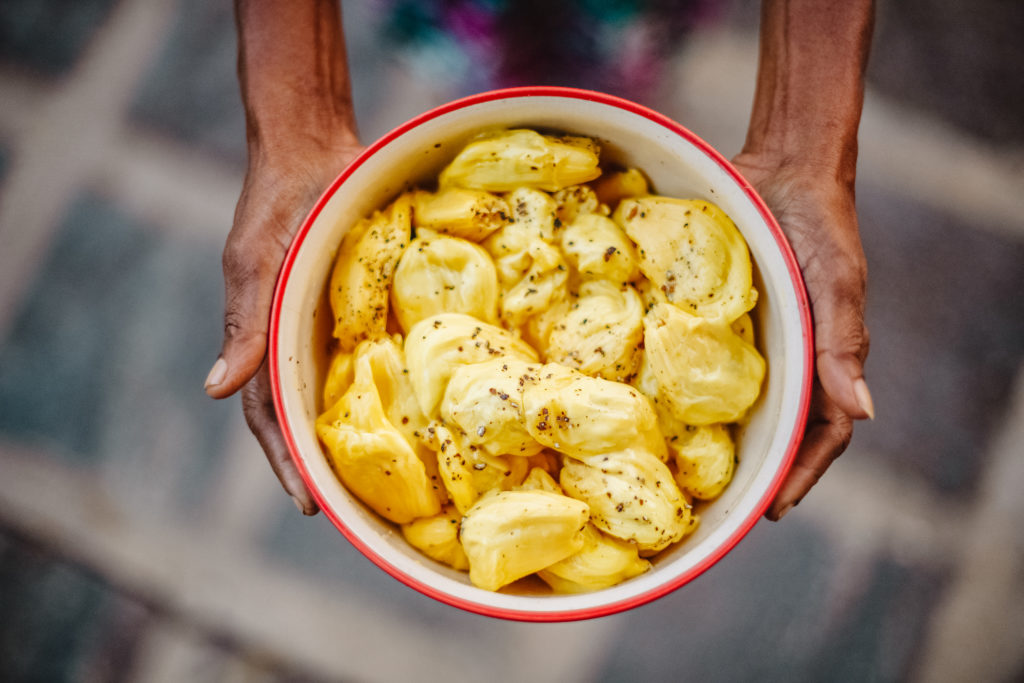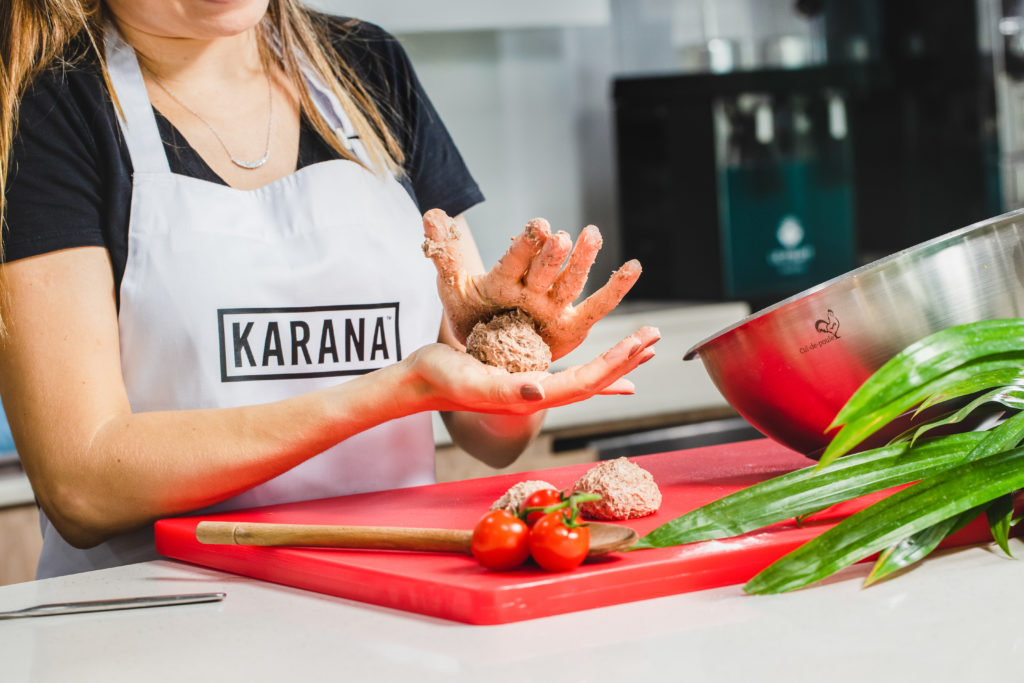4 Mins Read
Singaporean jackfruit alt meat startup Karana has announced distribution in the U.S. The move comes after a successful rollout through Singapore and Hong Kong.
Three San Francisco restaurants will be serving the startup’s flagship jackfruit meat, marking the brand’s first launch outside of Asia. The company has established operations in San Mateo, California. The U.S. launch follows an undisclosed pre-Series A round; the company has raised over $3 million in total since its inception in 2018, including a $1.7 million seed round in July 2020.
“We’re extremely excited to be launching with such an amazing group of chefs and restaurants,” said Karana co-founder, Dan Riegler in a statement. “Our mission is to take ingredients like jackfruit that support soil health and farmers, and make them an incredible, diverse textural and flavor experience for use in the kitchen.”

The “triple-threat” plant-based meat
Karana claims to have secured itself the reputation of being a triple threat, which the company believes will help it stand out in an “ever-more-crowded plane-based meat scene”.
Its three prongs encompass taste, health, and biodiversity and have created a portfolio consisting of a range of meat alternatives, all crafted from whole-plant jackfruit. Using proprietary techniques, Karana has been able to expand on the recognised ‘pulled’ style of jackfruit meats, encompassing a range of styles.
The company claims that in-house technology allows for an amplification of meat-like textures without artificial additives while capturing all of the nutrients of the original plant. Products are formulated with home and professional chefs in mind, hence the natural move into food service in the U.S. prior to any retail launches.
KARANA’s rollout across Singapore last February, with six restaurants signing on to use Karana jackfruit products was deemed a success and a Hong Kong launch followed a few month later, with restaurants and a delivery chain forming key partnerships.

Demonstrating product versatility
Karana has secured strategic partnerships with three restaurants. Each focuses on a different style of cuisine. This move was intentional, to demonstrate what Karana sees as the natural versatility and 1:1 substitution capabilities of its plant-based meat. Empress by Boon, led by Michelin-starred chef Ho Chee Boon, is a Cantonese restaurant. Wildseed is using Karana’s meat on its plant-based pizzas (in fact, their product replaced Beyond Meat). Base Camp offers Nepalese tapas.
“Our original goal was always to have people taste Karana through chefs first. It’s the ultimate way to experience a new ingredient and in line with our goal of making every customer interaction with a Karana product an incredible culinary experience,” co-founder Blair Crichton said in a statement.
Karana currently has a ground meat product and a 100% plant based version of a classic pork gyoza (potsticker) that will first be available for food service to chefs and restaurateurs in the San Francisco Bay Area, followed by the Greater Los Angeles area.
Jumping on jackfruit
As an ingredient, jackfruit is sustainable, fibre-rich and chock-full of vitamins and nutrients. However, as plant-based meat brands seek to capture increasingly realistic flavour and texture profiles, it has become more synonymous with the clean-label and whole foods side of vegan meats. That’s not to say that Karana is alone in continuing to tap the potential of the wonder fruit.
In December last year, Jack and Annie’s revealed it had closed a $23 million Series B round. The U.S. brand has become a frozen foods sector leader in just one year of operation, with its nuggets taking top spot in the natural sub-category. All products are based on jackfruit and new funding was earmarked for wider distribution.
In a less conventional take, Malaysian startup Nanka produces 100 percent jackfruit burger patties, alongside blended options that include a minority of real meat. The thinking behind the move is that die-hard meat lovers will be more likely to try a vegan product if eased in gently. The blended patties include 70 percent jackfruit and 30 percent real meat, either chicken or beef. Previous combination products did not perform well for other brands, notably Tyson-owned Raised & Rooted.
All photos by Karana.




